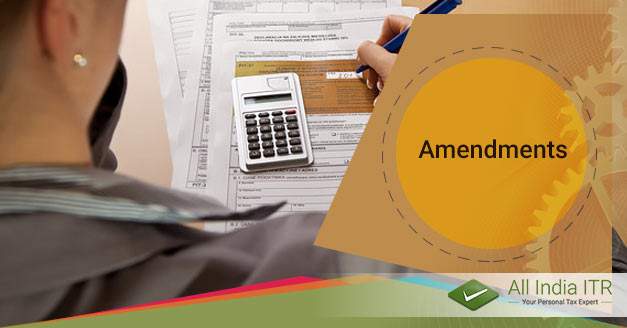
To simplify tax filing process and to reduce the burden of taxation on the taxpayer, the Central Board of Direct Taxes (CBDT) has made several changes in the tax filing process of the year 2017. The changes which will be applicable from Financial Year 2016-17 are as follows:
- Change in the Tax Rate
- Disclosure and Linking Aadhar Number
- Effect of Demonetisation
- Change in the Number of ITR Forms
- ITR-1 (Sahaj): For individuals whose source of income is from salaries, house property and other sources such as income earned from interest and whose total income is less than Rs. 50 Lakhs.
- ITR-2: This ITR is to be filed by individuals and Hindu Undivided Families (HUF’s) who are not associated with any business or profession. Since the Financial year 2015-16, the ITR has merged with Form 2/2A and 3.
- ITR-3: This ITR is to be filed by those individuals who have an Income from proprietary business or any other profession. This form has been renumbered and has replaced ITR-4.
- ITR-4 (Sugam): This is only for presumptive income from business and profession. This form has replaced ITR 4S which was used in the financial year 2015-16.
- Filing of ITR has been made Mandatory even if Long Term Capital Gains are Exempted
In case the aggregate income of an individual after exempting long term capital gains is more than the basic exemption limit i.e. Rs. 2,50,000 the individual is liable to file an ITR as per the amendment made in the last provision of section 139 (1) of the Income Tax Act, 1961.
It means if the taxable income is less than the basic exemption limit but because of exempting Long Term Capital Gains (LTCG), the total amount exceeds Rs. 2,50,000, then the filing of returns become mandatory. If Long Term Capital Gain is arising on the transfer of equity share or units of business trust then it is not applicable for taxation, on satisfying the following conditions;
- The transaction of sale of equity shares or units of an equity oriented fund or units of a business trust is liable to securities transaction tax.
- Such shares should be long term capital asset as defined in the IT Act, 1961.
- The transfer should have taken place on (or) after 110-2004.
- Increase in Rebate
Earlier the rebate provided was Rs. 5,000. But now, as per Section 87A, Income Tax Act allows a rebate of Rs. 5,000 for individuals whose total income (after deduction) is less than Rs. 5,00,000. However, if the tax liability is less than Rs. 5,000 then the amount of rebate will be restricted to the liability of tax.
The benefits of investing in a start-up can be reaped under Section 54GB. This section states that if an Individual has earned Long Term Capital Gains (LTCG) by selling house or land and investing that amount in equity shares of a start-up of a business, then such gain or income will not be taxed. These kinds of investment in shares should be made before filing ITR and return should be filed before the due date.
Please contact us on this toll free number to know more 18001025807 or click on
| Online Income Tax Return E-filing solution | All India ITR |
Comments
Post a Comment